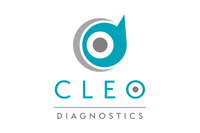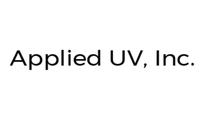From contact lenses that measure glucose levels to wireless sensors that read them through the skin, blood sugar monitoring is undergoing a major reinvention. But why are medical device companies investing so much into diabetes management specifically?
From contact lenses that measure glucose levels to wireless sensors that read them through the skin, blood sugar monitoring is undergoing a major reinvention. One thing seems clear: the way of the future is needleless. But why are medical device companies investing so much into diabetes management specifically?
Abbott Laboratories (NYSE:ABT) has a dedicated Diabetes Care division. Echo Therapeutics (OTCQB:ECTE) brands itself as revolutionizing glucose monitoring.
Countless other organizations are working on the issue as well: earlier this week, researchers at the University of Houston announced they’d developed a contact lens that measures glucose through tears. Verily (NASDAQ:GOOG) has been at work on a similar product since 2014.
So why the focus on glucose monitoring?
“Diabetes is an underserved market,” Vicky Assardo, a spokesperson for Abbott, told Life Science Investing News. Indeed, many glucose-monitoring products currently on the market are outdated and cumbersome.
Most require diabetics to draw blood and then apply it to a test strip. The process is invasive, painful and usually indiscreet.
And diabetics have to do it as many as eight times per day.
But that’s changing—just look at the wave of glucose monitoring devices newly arrived on the market. “We have key expertise to develop products that fulfill the unmet needs and alleviate the burdens for people with diabetes,” Assardo told us.
Case in point: the company’s aptly named Freestyle Libre Pro System, which the FDA approved this week. The sensor sends up to 14 days of continuous glucose data to healthcare professionals. “After the sensor is applied to the patient,” Assardo explained, “there is no requirement for the patient to interact with the system.”
It’s a far cry from from the finger-pricking self-monitoring most diabetics are used to.
But that’s the direction that glucose monitoring devices are headed. And as they become more user-friendly, these products also become more attractive to a wider consumer base.
Of course, there’s already a pretty big market for improved glucose monitoring devices. According to the World Health Organization’s 2016 report, some 442 million adults are diabetic—and that number just continues to grow.
But companies like Echo Therapeutics are realizing that diabetics aren’t the only people who can benefit from glucose monitoring. They see widespread applications for their product: while designed for diabetes management, it can also assist with weight loss or fitness tracking. According to their website, “Echo provides solutions for the way you live every single day.”
Talk about capitalizing on market share.
Research originally intended for diabetes management has opened up new opportunities for Echo and companies like it—and that, in turn, may generate increased investment interest. Put simply, progressive glucose monitoring devices have the potential to cross from the medical market into the mainstream.
Don’t forget to follow us @INN_LifeScience for real-time news updates.
Securities Disclosure: I, Chelsea Pratt, hold no direct investment interest in any company mentioned in this article.



